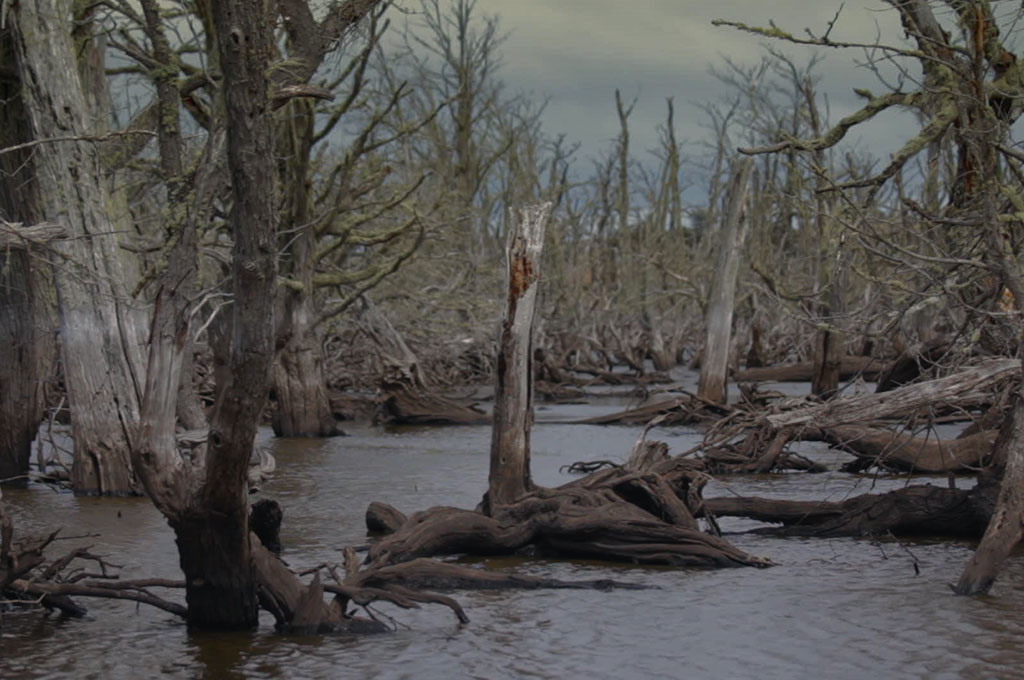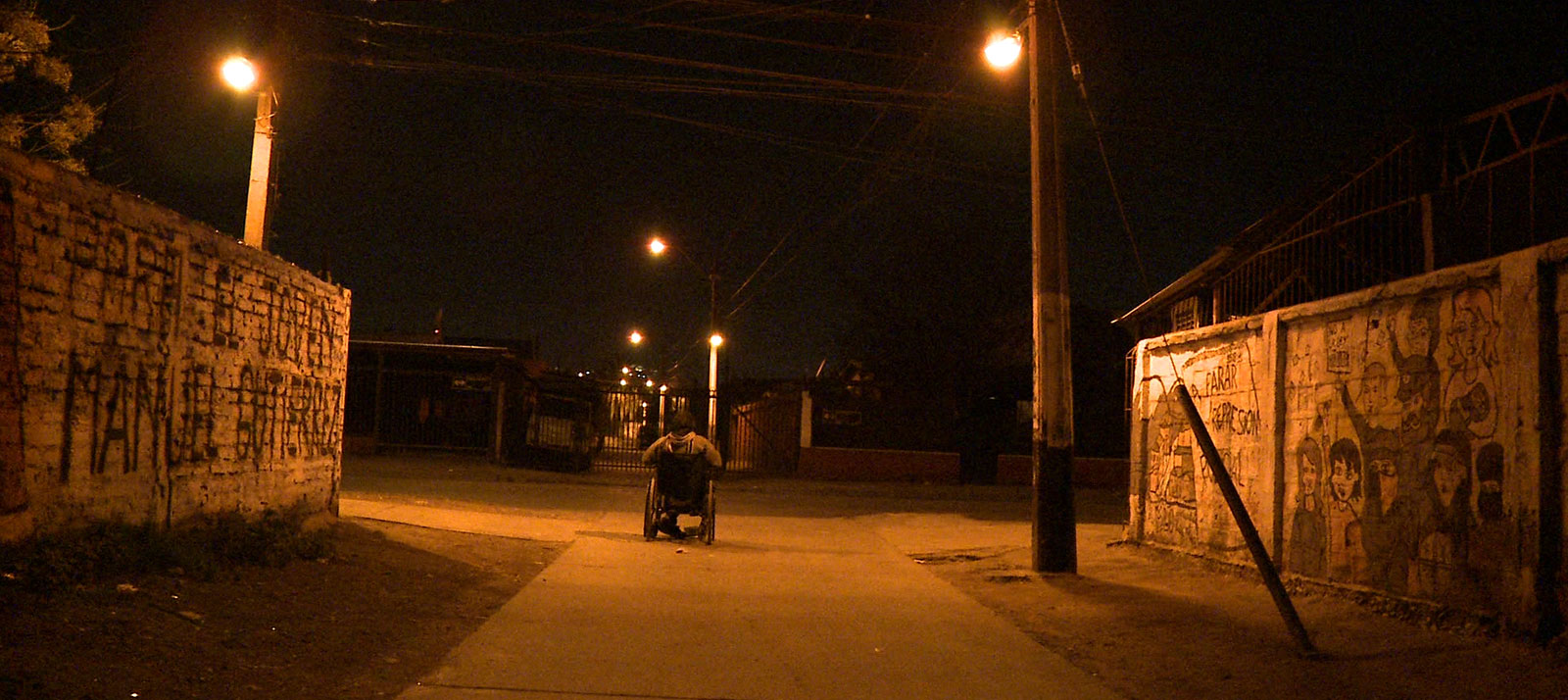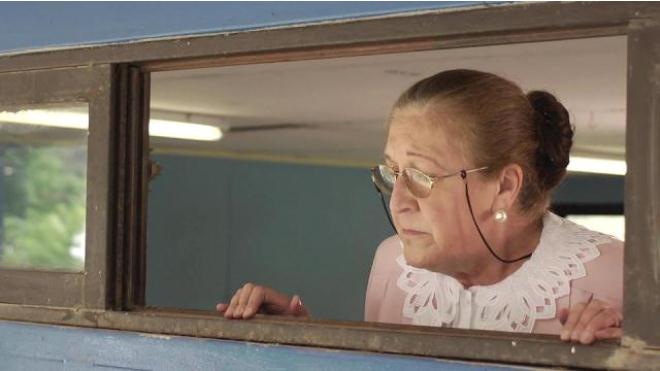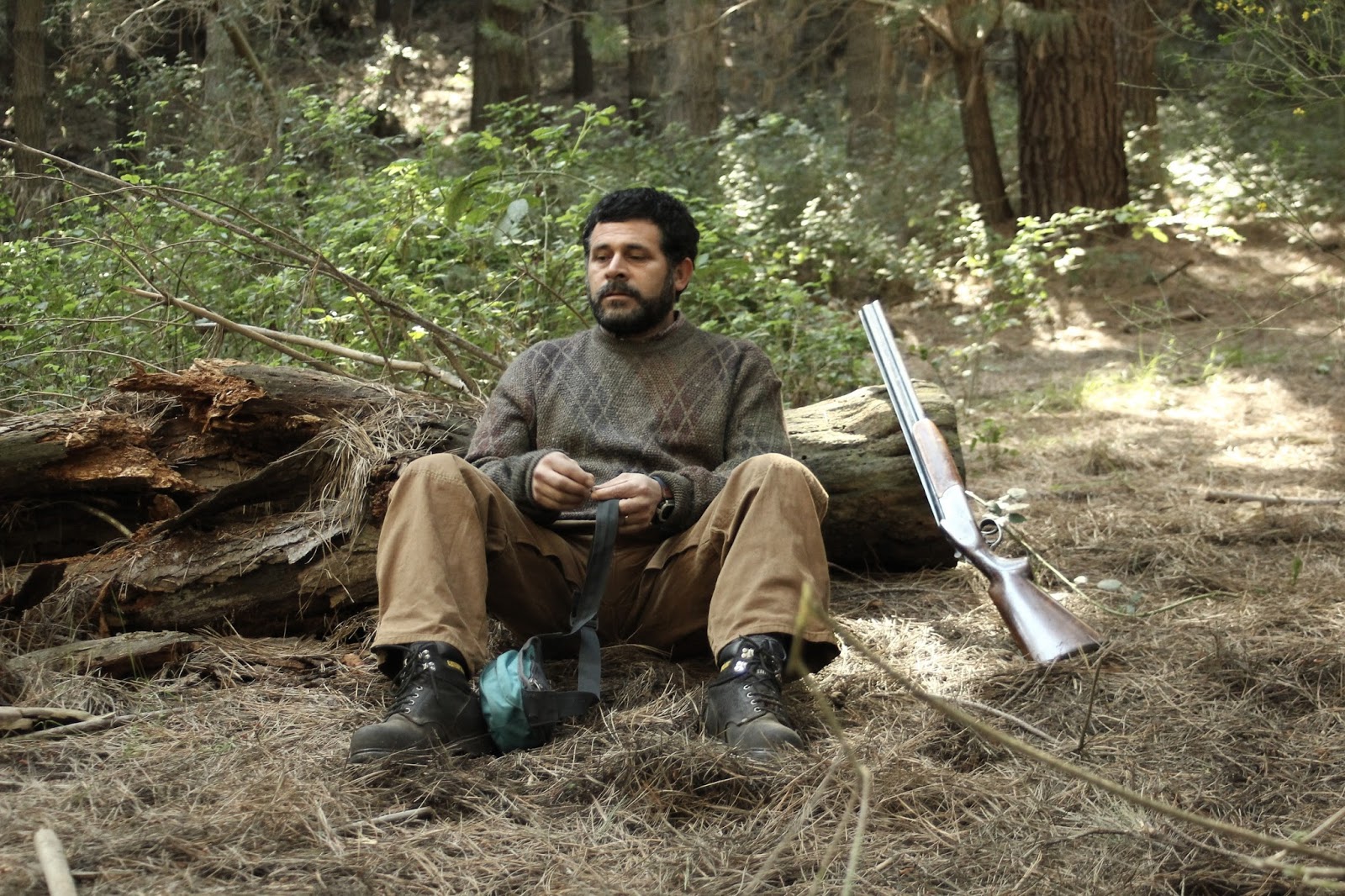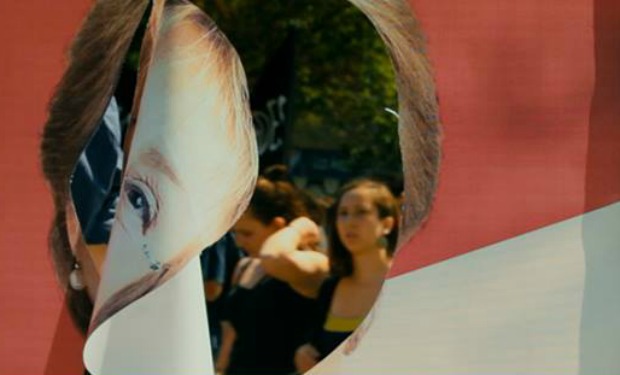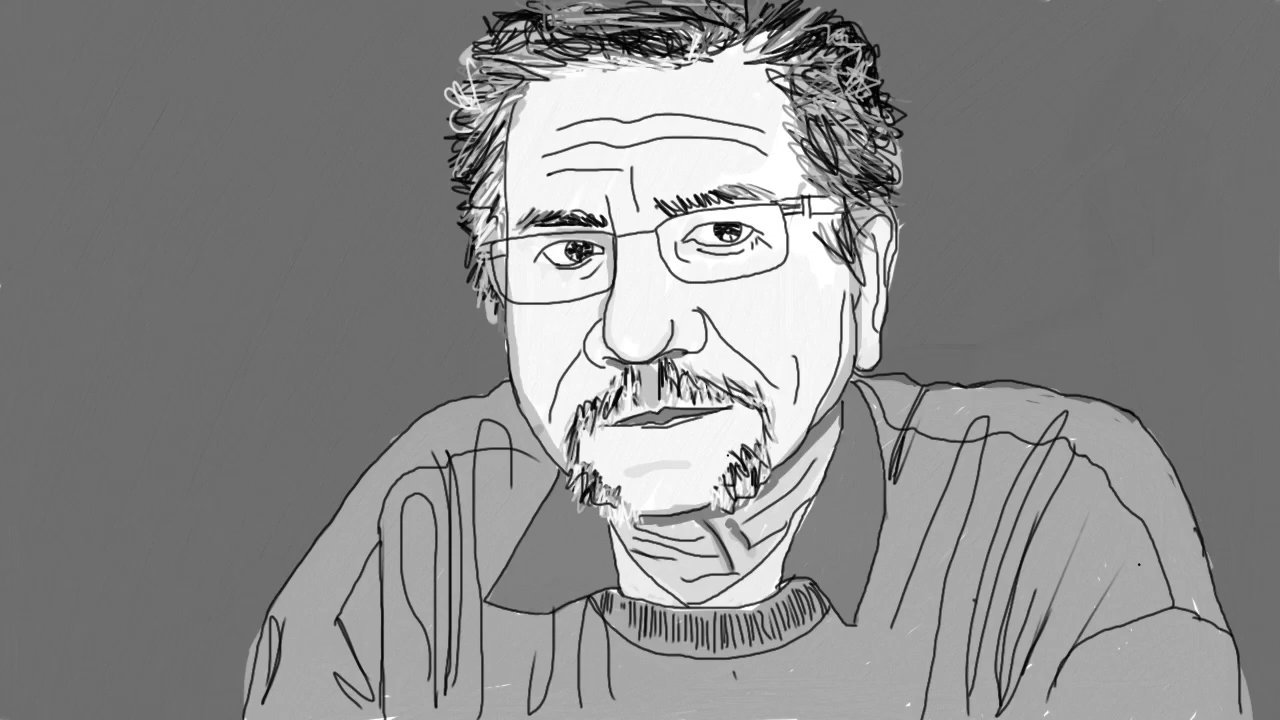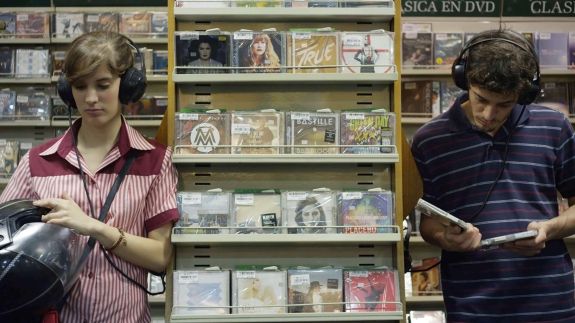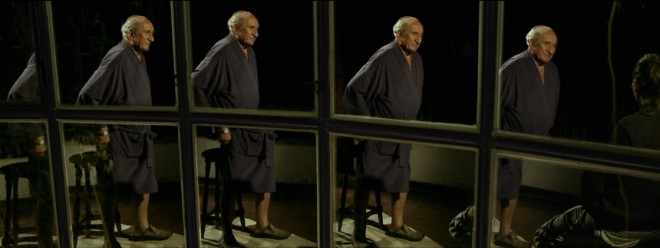Ah, 2014. It was an interesting and conflicting year for Chilean cinema. While it was one of the years with most Chilean film on Chilean screens, it was also one of the few in which there was little to none repercussion of our films in festivals around the world. With the exception of the Oscar card, To Kill a Man, I don't think there's been much talk of Chilean cinema, as there has been since 2009.
The landscape for 2015 doesn't look good either. It will be the first year since 2009 that there won't be a Chilean film in the lineup of Sundance. The release model in Chile of Chilean films is still faulty and dependent of the money income that they get, and they usually don't get much unless they are broad, insulting comedies with television actors and even worse premises.
There were, still, 10 movies that I can say that are recommended for the viewer, and I say this without a chauvinism or some kind of self-congratulating post, this is honestly the 10 best Chilean films that were released purely in 2014 (carry-overs from 2013 or earlier don't count) in some way or another.
The first five are actually the ones I consider the best of the year, the other five are in alphabetical (in Spanish) order and one could be better than the next, but no one's counting. Enjoy and try to search in your local festivals for these films!










Beaverland (Los castores) Directed by Nicolás Molina and Antonio Luco Premiered at the Valdivia Film Festival 2014
From my review, written a few months ago:
Cue in Beaverland (Los Castores) a film about an ambient crisis: beavers are taking over the Chilean Patagonia, making dams, deviating rivers, destroying millennial trees, making the land unusable for pastures, growing trees or crops. In one moment of the movie, we see the damage that the foreign colony of beavers is doing is bigger than that of man-made dams or even mining operations in the same zone, like three or even five times bigger, depending.
The government of Chile isn't taking into account the risk of what is happening, so a couple of biologists go out of their way to investigate the issue and to do what has to be done with a plague: they have to kill the beavers. With that harsh premise, we can also see that there's already a point of view; the filmmakers want to see that the plague is taken care of, as they side with the biologists and the people around who are being affected by the animals.
But at the same time, the directors don't shy away from any element that would undermine their efforts in any way. We see how the people who are complaining against the beavers are mostly higher class, rich countryside people who only see the loss of profit in the incident. Then, there's the long scene in which they find a dead beaver and dissect it. Or the constant sequences of one of the biologists trying to shoot a group of beavers with a rifle.
A Committee Chronicle (Crónica de un comité) Directed by José Luis Sepúlveda and Carolina Adriazola Premiered at FIDOCS 2014
A politically heavy documentary by two of the strangest directors of Chile, who mix fiction and documentary registration in a crude and raw language. By the time this movie finished its screening, I was already enveloped in the way that the access that the filmmakers have to the subjects of this 'committee' and how they took advantage of the use of basic camcorders, handing them out to members of the committee so they could edit their footage in the middle of the narration. It's a documentary about a committee created by the family of a kid that was killed in Chile by a policeman, only because he was unlucky enough to be in the range of the bullet that was fired. Complications arise when we know that there was no reason for the policeman to be firing that weapon, nor was the kid involved in any of the protests that were going on at the time and that supposedly triggered the shooting. The committee is commanded by the brother of the dead kid, who is wheelchair bound, and we see how their activities, their protests, find them in the most incredible places, trying to find justice, but at the same time falling into a political game as well as some kind of attention grabbing situations that fall far away from the real issues of the crime that was committed. A complex film that will surely be worth revisiting in time.
You can watch this film online until December 31st here: http://www.margenes.org/seccion-oficial-margenes-iv/71-festival-margenes/iv-festival-m%C3%A1rgenes/seleccion-oficial-miv/623-cronica-de-un-comite-film.html
Natural Disasters (Desastres Naturales) Directed by Bernardo Quesney. Premiered at the Santiago Film Festival 2014
From my review, recently written
Natural Disasters is a comedy about a group of students during their last year of school, prepping for the tests that would lead them to a possible university education, and how they are confronted by a former (really old) teacher. She suddenly appears with her pink uniform and with the intention to make the class her own, even though she was fired from the school some time before. Things turn serious when she closes and blocks the door of the classroom with the students inside, promising to come out only if they explain to her why she was fired or if they offer her a new contract.
The film suddenly becomes tense and funny, mainly due to the impressive acting of the actresses that play the sacked teacher, the teacher of the children, the daughter of the sacked teacher, the principal of the school, and one of the principal's aides played, respectively, by Anita Reeves, Fernanda Toledo, Amparo Noguera, Catalina Saavedra (known internationally for her role in The Maid, the 2009 film that won Sundance) and Paola Lattus. They all bring together an adult vision and perspective to an issue that seems to be in control of the students, who don't seem to understand that much of what's going on.
The playfulness of the visual language -- stopping the action and showing hand-drawn animation over the characters to illustrate how much time is left before the parents arrive at a theater presentation some kids in the school are preparing, and thus, realize that a former teacher has taken some kids ransom -- is quite fitting and not distracting, as one would think the first time it's shown. There's also the rhythm that the film has, a constant moving forward, with dialogue that is always fast paced.
Read more: http://screenanarchy.com/2014/12/review-natural-disasters-desastres-naturales-is-a-funny-political-film-about-students-and-teachers.html#ixzz3MT6lWgcH
To Kill a Man (Matar a un hombre) Directed by Alejandro González Almendras Premiered at Sundance 2014
This grim and consciously crafted film has already failed at the race for best foreign language Oscar, but it has been widely named the best Chilean film of 2014 by many critics from my country. I think that while not completely spectacular in its resolution, it is a telling film of the state in which our justice and the extent that it can go when it comes to dangerous neighborhoods and people who just seem intimidating, even to the police, and how sometimes the only thing that seems to be the answer is the violence and vengeance. Infuriating and at the same time sad in how the film portrays its acts of violence and crime, the movie does manage to present a fitting end to the series of acts that our protagonist does to take revenge from the criminal that shot his son.
Propaganda Directed by Various Directors Premiered on Theaters in Chile in 2014
From my review, written a few months ago:
I had the idea that this movie, out of all of them, would be harder to talk and write about to an english speaking audience, specially since it's so immersed in the goings of politics of this day and era, exclusively placed in Chile, in fact the movie chronicles the propaganda and elections of the latest presidential election, held last year, in a documentary and yet still distinct style and curious subject matter.
But the thing is that I could bit off my tongue and say that this documentary, mainly because of the way its shot and its subject matter, it's already been chosen for some big documentary film festival overseas, including this years FIDOCS, and maybe who knows how many more could enter, because it's a good film,made only better if you know closely the subject and the protagonists, but on its own it's still a compelling film, and that's the way I'll be looking at it right now in this review.
There are no camera movements in this documentary, the movement appears and is proposed by the elements inside the frame, whether they be the protests or violence of the masses trying to get something better than what they are offered, moving in perpendicular motion, or the movement of the flames masks the movements behind it, making it a representation of a chaos that is never real nor completely irreversible.
Read more: http://screenanarchy.com/2014/06/fidocs-2014-review-propaganda-is-ultimately-universal.html#ixzz3MTLhxEMt
You can see this movie online until December 31st here:
http://www.margenes.org/seccion-oficial-margenes-iv/71-festival-margenes/iv-festival-m%C3%A1rgenes/seleccion-oficial-miv/630-propaganda-film.html
¡Viva Chile Mierda! Directed by Adrián Goycoolea Premiered at FIDOCS 2014
A documentary film about a man who came out during the dictatorship in Chile and said 'yes, we the military, tortured and killed people'. The film is mostly a recollection of the director and his family, that had to be exiled, but lived thanks to the actions of this man, who helped them live when they were detained. It wasn't until later that they knew that he was the same man that years later would be the first trusted source of what had truly happened through the years, and how he himself had been involved in tortures and killings. A powerful film that mixes animation and filmed bits to a great avail.
Two Shots Fired (Dos disparos) Directed by Martín Rejtman Premiered at the Locarno Film Festival 2014
Not exactly a Chilean film. This movie is directed by a famous Argentinian director and a mostly Argentinian cast and crew, but it also is a co-production with Chile, using some money, cast and locations from my country. So, in my way of making lists, I say this counts as a Chilean film to me. But, this is a strange film, I don't know if I like it or not, specially because I can't put my finger on what's about it that bothers me and what I like about it, but I still think that the 'river' way in which each plot points follows each other seems random and doesn't follow a theme other than "this happened and then this because I decided and because I say so". There is a bunch of drama and interesting questions that are left unanswered, and while I like that, I still think the film abuses of that superior position. Nevertheless, there's been no other film this year that I've thought so much of in the past few months, that has to count for something!
The Invention of the Fatherland (La Invención de la Patria) Directed by Galut Alarcón and Chamila Rodríguez Premiered at the Santiago Film Festival 2014
This documentary (See a trend here? Documentaries in Chile are probably the best thing that we do) follows the relationship between the director and his father, a famous actor of TV and cinema. Splashed with clips and memories from the family, the movie is quite moving in the way that it shows us those elements. There is a sense of recrimination and even a direct confrontation between father and son, mainly because of some decisions and actions that the father committed when the director of this movie was young. A moving experience.
Santiago Violenta Directed by Ernesto Díaz Espinoza Premiered at the Valdivia Film Festival 2014
From my review, written a few months ago:
Three friends from school have got together to follow the dream of Brocco of making a movie called 'Santiago Violenta', and using the apparatus that his independent producing company has, he manages to film a teaser and many other scenes so he can pitch it. But the reality is far from perfect, most of the jobs that Brocco has are weddings and other celebrations of people that he edits in unique and distinct ways that rarely please the client. He needs money.
So does one of his friends, Noel, who has to protect the inventions that his father has made but lost in many gambles with destiny. The only one that has some success is Mauro, also protagonist of the film that Brocco is making, who works at his father-in-law's office as an architect who barely does anything yet is maintained by his wife, who also happens to work there.
It is in one of their nights together that these three friends find themselves in a weird crime story, as the owner of the bar that they went to, an old lady that calls herself Marilyn, is robbed by three women, who throw away a handbag over the wall of a motel, in which they try to recover it. It is in that first adventure that they realize how hard it really is and how much it will challenge their way of seeing Santiago and what they'd be willing to do.
It is an entertaining and many times funny romp with friends and not much more, and it doesn't need to be anything else than that, even as it comes to a closure and the film becomes weirder and even hard to understand, one can't help but laugh at the plot and how they end up being so involved in crime that even them can't believe how deep in the water they truly are.
Read more: http://screenanarchy.com/2014/10/valdivia-2014-review-santiago-violenta-a-pleasant-surprise-and-a-new-era-for-diaz-espinoza.html#ixzz3MTTfjQod
It premieres in cinemas in Chile January 1st
Land in Movement (Tierra en Movimiento) Directed by Tiziana Panizza Premiered at the Valdivia Film Festival 2014
The exploration and ethnographic work made in the short films of Tiziana Panizza continues in this one about the consequences of the 2010 earthquake in many places of Chile. At a very short length (less than half an hour) it manages to create a mood that replicates those of his first three short movies. She also manages to put together a perfect combination of digital and 16mm footage, making it seamless and perfect. A short film to end this list.

More about Beaverland
More about Natural Disasters
More about To Kill a Man
More about Propaganda
More about Santiago Violenta
- Fantaspoa 2015: First Wave Of Films Includes SCHERZO DIABOLICO, TURBO KID And More!
- Latin Beat: Upcoming In Mexico, HEROES In Chile, PAPELES In Argentina
- SANTIAGO VIOLENTA Brings Pistolas And Piscolas In The New Theatrical Trailer!
- Watch The Trailer For Espinoza's SANTIAGO VIOLENTA
- Valdivia 2014 Review: SANTIAGO VIOLENTA, A Pleasant Surprise And A New Era For Díaz Espinoza
Around the Internet
Recent Posts
ALL THE PRESIDENT'S MEN 4K UHD Review: Deeper with Special Features
UNDERTONE: Hear it Early in a Dolby Cinema
Leading Voices in Global Cinema
- Peter Martin, Dallas, Texas
- Managing Editor
- Andrew Mack, Toronto, Canada
- Editor, News
- Ard Vijn, Rotterdam, The Netherlands
- Editor, Europe
- Benjamin Umstead, Los Angeles, California
- Editor, U.S.
- J Hurtado, Dallas, Texas
- Editor, U.S.
- James Marsh, Hong Kong, China
- Editor, Asia
- Michele "Izzy" Galgana, New England
- Editor, U.S.
- Ryland Aldrich, Los Angeles, California
- Editor, Festivals
- Shelagh Rowan-Legg
- Editor, Canada


